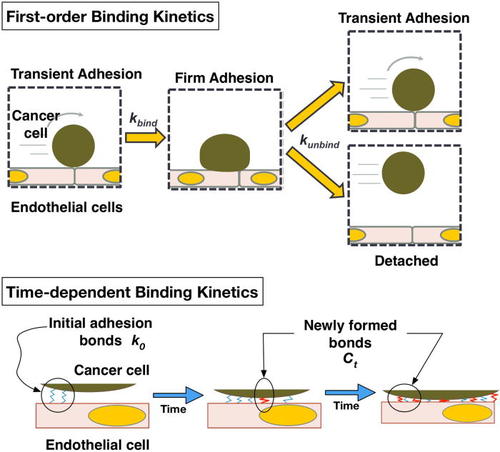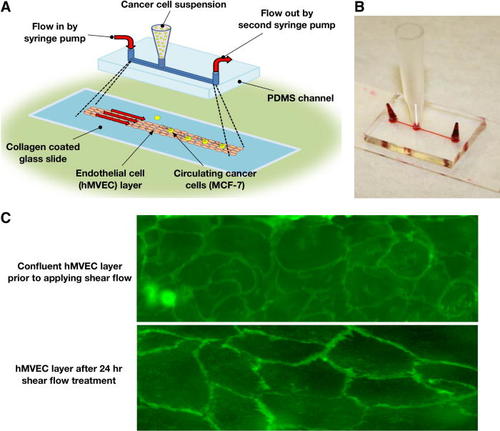Our work on developing a microfluidic model of cancer cell adhesion during metastasis process is published at Biomicrofluidics.
Analysis of adhesion kinetics of cancer cells on inflamed endothelium using a microfluidic platform
Abstract
Metastasis is the ultimate cause of death among the vast majority of cancer patients. This process is comprised of multiple steps, including the migration of circulating cancer cells across microvasculature. This trans-endothelial migration involves the adhesion and eventual penetration of cancer cells to the vasculature of the target organ. Many of these mechanisms remain poorly understood due to poor control of pathophysiological conditions in tumor models. In this work, a microfluidic device was developed to support the culture and observation of engineered microvasculature with systematic control of the environmental characteristics. This device was then used to study the adhesion of circulating cancer cells to an endothelium under varying conditions to delineate the effects of hemodynamics and inflammations. The resulting understanding will help to establish a quantitative and biophysical mechanism of interactions between cancer cells and endothelium.

